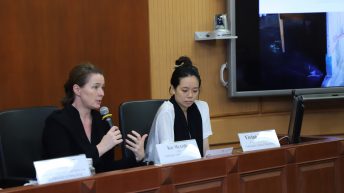Date: 09Nov 2015
In this seminar, Dr Ziegler argues that Strasbourg’s voting eligibility jurisprudence concerning the interpretation of Article 3 of the Protocol I of the ECHR (“A3P1”) has not clearly distinguished between the desirable level of scrutiny for questions relating to the choice of electoral systems and the desirable level of scrutiny for questions relating to voting eligibility.
Drawing on Strasbourg’s jurisprudence regarding the disenfranchisement of convicts and non-resident citizens, Dr Ziegler will contend that, even if Contracting States should enjoy a wide ‘margin of appreciation’ on grounds of democratic legitimacy regarding their choice of electoral system, such a margin is unwarranted when Strasbourg scrutinises legislation that affects individual access to the democratic process. He will further argue that, in its voting eligibility jurisprudence, Strasbourg has been timid rather than interventionist.
Dr Ziegler concludes that Strasbourg’s restrictive literal interpretation of A3P1 has effectively, even if unintentionally, set a ‘ceiling’ for the protection of the right to vote in the UK, due to the combined effect of the prevalent reliance by UK courts on the ‘mirror’ principle, and to the absence of a codified constitutional right to vote in the UK constitutional order.
Dr Ruvi Ziegler is a Lecturer in Law at the University of Reading, School of Law, where he is a member of the Global Law at Reading research group. He is the Editor-in-Chief of the Refugee Law Initiative Working Paper Series at the Institute for Advance Legal Study, a Research Associate of the Refugee Studies Centre at the University of Oxford, and an Academic visitor at its Faculty of Law. Prior to this, he was a visiting researcher at Harvard Law School and a Tutor in Public International Law at the University of Oxford. He obtained his DPhil, MPhil and BCL from the University of Oxford and was called to the Israeli bar in 2003. His research focuses on Human Rights Law, Citizenship & Electoral Rights, International Refugee Law, and International Humanitarian Law.




